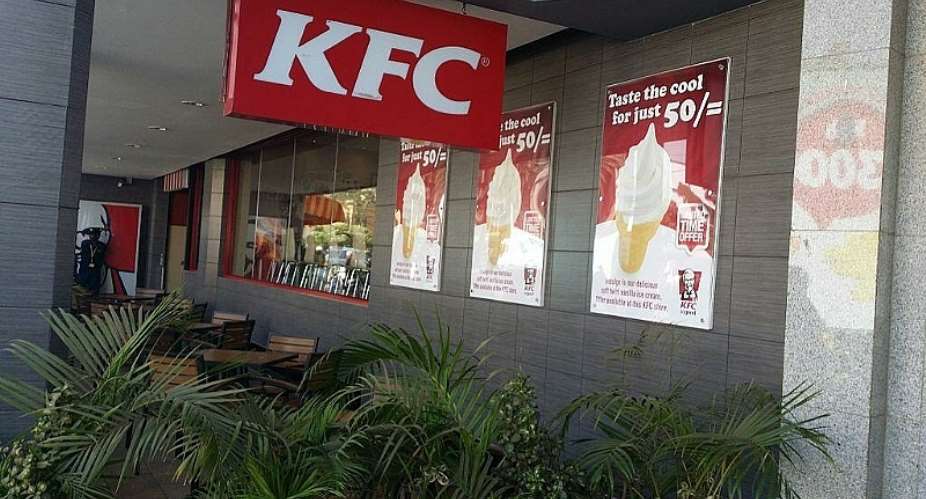Furious Kenyans are calling for a boycott of the fast-food giant KFC after it announced Monday it had run out of potatoes. While spuds are the second-largest crop in Kenya, KFC uses imports to make its chips, hence the shortage.
The news comes during Kenya's potato harvesting season.
KFC said the shortage was the result of shipping delays caused by Covid, and instead offered buns, ugali maize porridge and other alternatives to make up for the lack of chips in its combo meals.
Washira Kaguongo, CEO of the National Potato Council in Kenya, which works with local farmers, told RFI it was not sustainable for KFC to continue sourcing its potatoes from abroad.
“Because we are offering a market for their food, we expect that they should also offer a market for our farmers,” he said.
However KFC's East Africa boss, Jacques Theunissen, told local media that approval procedures could not be sidestepped to bring in local farmers on global quality standards.
Potato haven
Kenya grows 62 different varieties of potatoes.
If the implication is that Kenya's potatoes aren't up to scratch, their track record in international produce speaks for itself. Kenya deals with international standards to supply European markets on a regular basis, as well as African chains, such as Chicken Inn.
“It's shocking that [US government development agency] USAID put a lot of investment to improve Irish potato production in Kenya, yet KFC can claim that farmers cannot meet the standards,” says Timothy Njagi, develomment economist and research fellow at the Tegemeo Institute of Agricultural Policy and Development in Nairobi.
- Goats for healthcare -- an initiative for pastoralists in Kenya
- Key reforms give renewed hope to Kenya's small-scale tea farmer
A US export, KFC is popular on the African continent, operating in 25 countries. It has had franchises in Kenya since 2011.
“They've never got in touch in the 10 years they've been in business here,” says Kaguongo.
“As soon as they set up in Kenya, they would have gone downstream to make sure that they introduce the varieties that they want in the country.”
Kaguongo said the National Potato Council had the necessary systems in place to support KFC if it reached out for help.
"We work with everybody, and more importantly we like supporting private sector businesses, so they can support farmers,” he said.
Rivals take advantage
KFC's competitors, such as Burger King and Chicken Inn have been taking advantage of the gaffe to promote their locally sourced chips.
There have been widespread calls from Kenyans to support the country's 800,000 local farmers.
When asked to respond, KFC Kenya told RFI there was an opportunity to source the potatoes from a local supplier.
“At KFC Kenya, we work with a number of local Kenyan suppliers to serve our customers locally sourced produce and ingredients in our restaurants," it said, listing poultry, fresh vegetables, bread buns, packaging,flour, and ice cream, to name a few.
This apparent U-turn is encouraging news for the National Potato Council, which says the scandal playing out on the internet could result in a win-win situation.
“We have tried reaching KFC previously, without success. I think now we are likely to have a meeting,” Kaguongo says.





 Whoever participated in the plunder of the state must be held accountable – Jane...
Whoever participated in the plunder of the state must be held accountable – Jane...
 A vote for John and Jane is a vote to pull Ghana from the precipice of destructi...
A vote for John and Jane is a vote to pull Ghana from the precipice of destructi...
 I’ll repay your abiding confidence with loyalty, understanding and a devotion to...
I’ll repay your abiding confidence with loyalty, understanding and a devotion to...
 ‘I’ve learnt deeply useful lessons for the future' — Serwaa Amihere breaks silen...
‘I’ve learnt deeply useful lessons for the future' — Serwaa Amihere breaks silen...
 I’m sorry for the embarrassment – Serwaa Amihere apologises for leaked sex video
I’m sorry for the embarrassment – Serwaa Amihere apologises for leaked sex video
 Dumsor: Matthew Opoku Prempeh not in charge of Energy sector – Minority
Dumsor: Matthew Opoku Prempeh not in charge of Energy sector – Minority
 Adu Boahen’s murder: Police arrest house help who was in possession of deceased’...
Adu Boahen’s murder: Police arrest house help who was in possession of deceased’...
 Akufo-Addo nominates Felicia Attipoe as Tema West MCE
Akufo-Addo nominates Felicia Attipoe as Tema West MCE
 Election 2024: I can't have someone I defeated twice as my successor – Akufo-Add...
Election 2024: I can't have someone I defeated twice as my successor – Akufo-Add...
